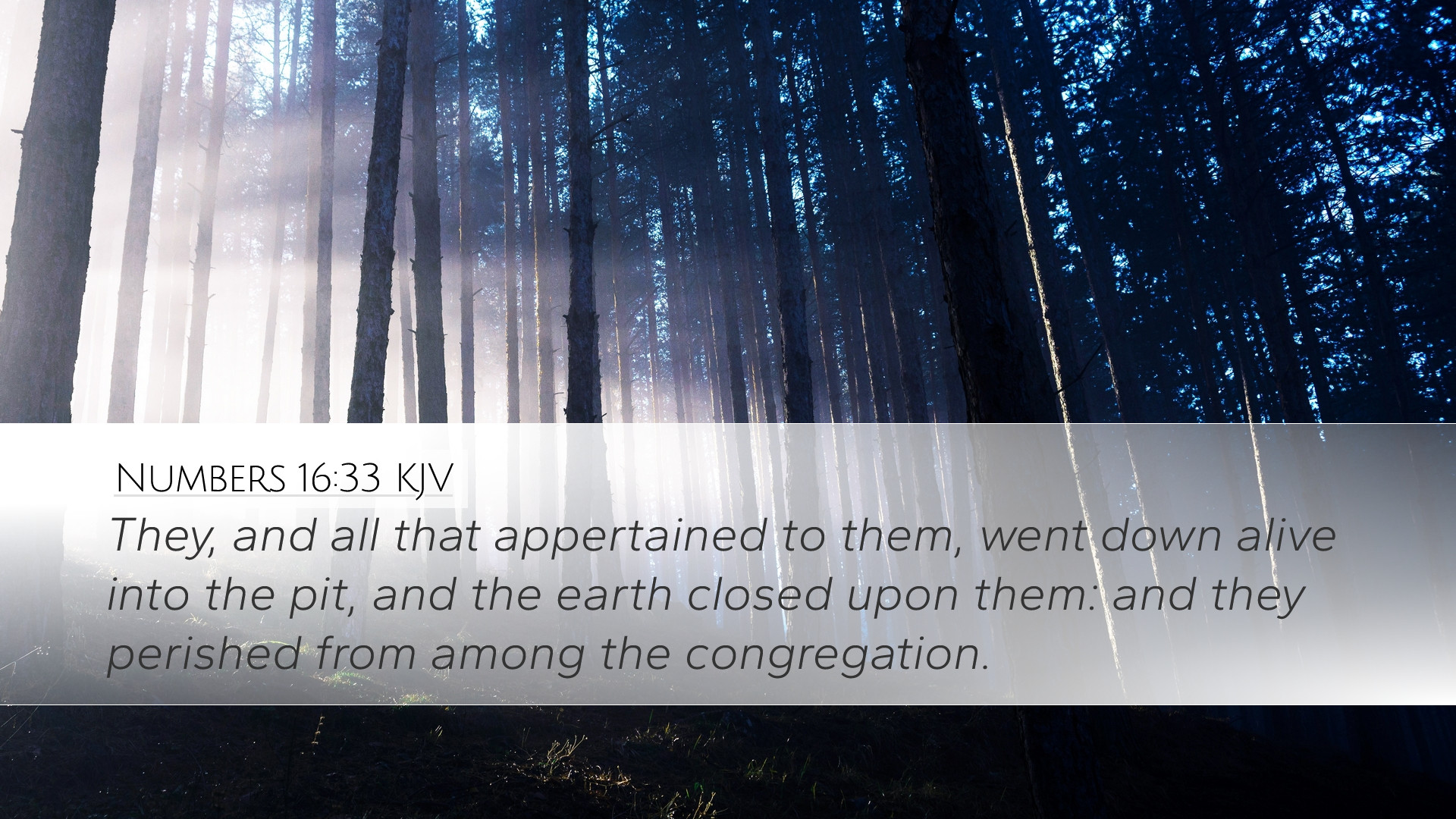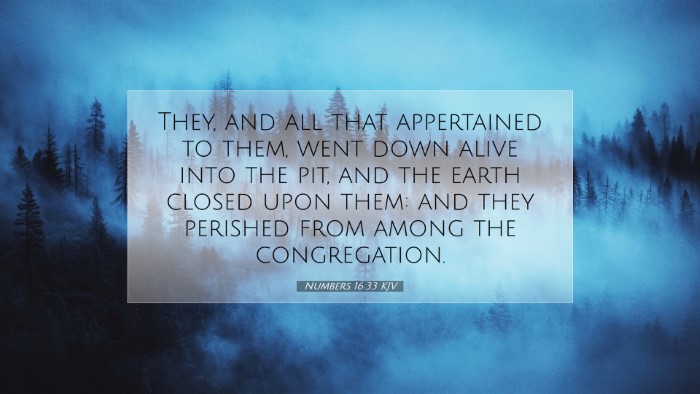Commentary on Numbers 16:33
Numbers 16:33 states, “So they, and all that appertained to them, went down alive into the pit, and the earth closed upon them: and they perished from among the congregation.” This verse marks a pivotal moment in the narrative of rebellion against God’s authority, particularly focusing on the Korahite rebellion led by Korah, Dathan, Abiram, and On.
Contextual Analysis
The rebellion of Korah is a significant event in the book of Numbers, wherein a challenge is presented against Moses and Aaron’s divinely appointed leadership. The attempt by Korah and his followers underscores key themes of authority and divine judgment.
- Historical Background: Korah, a Levite, rallied a group against the leadership of Moses, claiming that the entire congregation was holy and questioning the need for Moses and Aaron as the leaders of Israel (Num. 16:3). This call for equality reveals deep-seated dissatisfaction within the Israelite camp.
- Divine Response: God’s intervention is both profound and terrifying. The earth opening to swallow the dissenters serves as a clear demonstration of divine authority and the severe consequences of rebellion against God’s chosen leaders.
Theological Insights
The event encapsulates profound theological insights concerning God's holiness and the gravity of rebellion against His established order.
- The Holiness of God: This act serves as a stark reminder of God’s holiness and the seriousness with which He regards rebellion. According to Matthew Henry, “God has an eye on every dissent and every rebellious thought against His governance.”
- Consequences of Rebellion: The fate of Korah and his associates illustrates a sobering reality for believers about the repercussions of opposing divine authority. Albert Barnes notes that “the divine judgment in this manner is a warning to all who would oppose the divinely ordained leaders of God’s people.”
- The Community's Safety: The immediate destruction of the rebels served not only as punishment for their sin but also as a means to preserve the collective holiness of the Israelite community. Adam Clarke remarks, “The integrity of the community is paramount in God’s plan.”
Lessons for Leadership in Faith
Numbers 16:33 offers a profound lesson for those in spiritual leadership positions. Both leaders and followers must recognize the sacredness of God’s appointed authority.
- Respecting God’s Authority: Leaders are called to honor their God-given role, while congregants should likewise respect and submit to divine orders. Pastors are encouraged to lead with integrity and humility, understanding the weight of their responsibility.
- The Danger of Discontent: The story warns against dissatisfaction with God’s arrangements. Spiritual discontent can lead to devastating consequences, both for individuals and congregations.
- The Role of Community: The dynamic of leadership is contextual. Followers play a vital role in upholding and supporting the leaders as they serve their God-given mission.
Conclusion
In conclusion, Numbers 16:33 serves as a stark reminder of the importance of submission to God’s authority and the nature of divine judgment. The historical narrative encapsulated in this verse not only reflects the dangers of pride and ambition but also reveals the steadfastness of God’s justice. For contemporary readers, it calls for introspection regarding their attitudes towards spiritual authority and the community of believers at large.
Ultimately, this commentary invites pastors and scholars alike to engage deeply with the text, weighing its implications for faith, community, and the understanding of God’s holiness.


